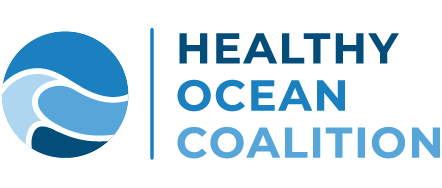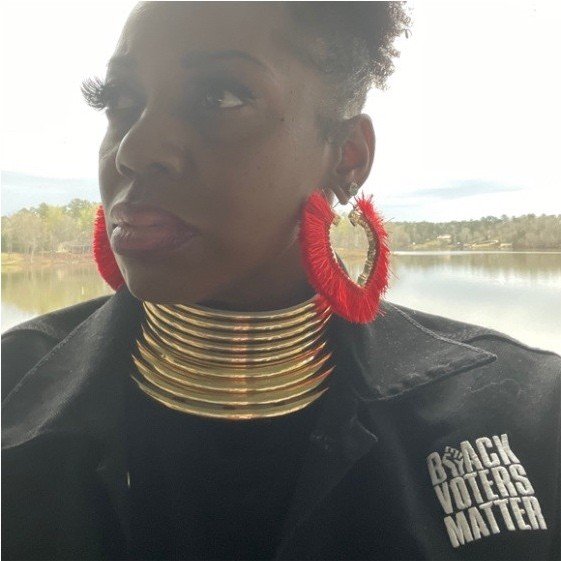Connecting Our future to the Ocean
This spring the Healthy Ocean Coalition teamed up with Georgia-based Cultivating Lives Educational Services (CLES), Ossie’s Fair Housing and Homecare, Performing Arts, Saving Grace Community Outreach, and the NAACP to bring families from Southeast Georgia to the ocean for a day of community, conservation, and connection. Led by CLES’ co-founder and HOC member, Kanisha Jones, this group cleaned the beach and learned of treasures right off the Georgia coast.
This piece is written by Kanisha on the day’s impact.
Some of the children who joined us for the beach cleanup had never seen the ocean before. That reality is more than surprising—it’s revealing. In a state with over 100 miles of coastline, entire communities of young people are growing up without access to one of our most vital natural treasures. The ocean is part of our culture, our economy, and our climate future. But for many, it remains just out of reach.
As a community organizer, I’ve spent my life advocating for young people. I’ve worked on issues ranging from food insecurity to education access to public safety. Over time, I’ve come to see how deeply connected those challenges are to our environment—because when nature is out of reach, so is health, opportunity, and healing.
With the support of the Healthy Ocean Coalition, I recently led a Rising Ocean Justice Leaders event that brought nearly 25 students from Albany, Sylvester, Waycross—and yes, even Brunswick—to St. Simons Island for a day of learning, community, and connection.
For many, it was their first time standing barefoot in the sand or watching the tide roll in. But what began as a simple beach cleanup quickly became something more. The students asked questions about marine life. They shared stories about their neighborhoods. They began to understand that the health of the ocean isn’t just an environmental issue—it’s a community one.
By the end of the day, they were creating colorful, heartfelt postcards to Senators Raphael Warnock and Jon Ossoff, calling for the protection of one of the ocean’s most extraordinary—and little-known—ecosystems right in their backyard:
Located roughly 80 to 200 miles offshore the coasts of Georgia, the Carolinas, and Florida, the Blake Plateau is a globally significant underwater landscape. It holds the largest known deep- sea coral habitat in the world, supports marine life like sea turtles, marlin, and whales, and plays a role in climate regulation. But it’s not just biologically important—it’s culturally sacred, especially to Gullah/Geechee communities who see it as the final resting place for ancestors lost during the Middle Passage.
Despite its value, the Blake Plateau has no lasting protections from damaging industrial activity. Its fragile corals, which took hundreds of thousands of years to form, could be destroyed in an instant.
The students I work with—brilliant, curious, full of promise—deserve access to this knowledge, to these places, and to the chance to shape the decisions that will define their future. And the Blake Plateau deserves advocates who understand that protection must include people—especially those too often excluded from environmental spaces.
That’s the intersection where the Healthy Ocean Coalition does its work: where access and protection meet. They don’t just advocate for the ocean. They help communities build power to protect it.
I saw young people step into their power—speaking up not just for the ocean, but for their right to be part of the decisions that shape it. That’s what ocean justice looks like.
We should protect special places like Blake Plateau now, while they are healthy and before it’s too late. We have a responsibility to make sure no child grows up just miles from the shore, never knowing the ocean is theirs to enjoy—and to protect, too. We all belong, and need to conserve the special places on our planet for us all to access now and in the future.




